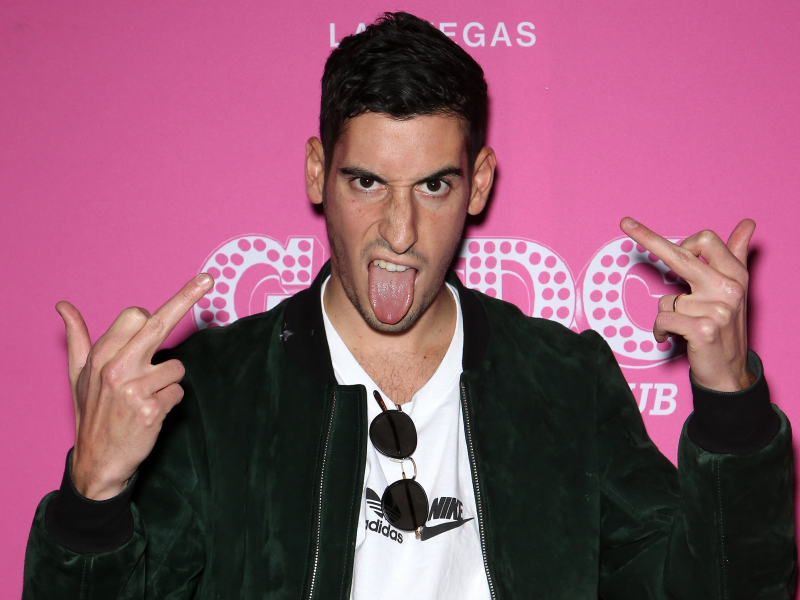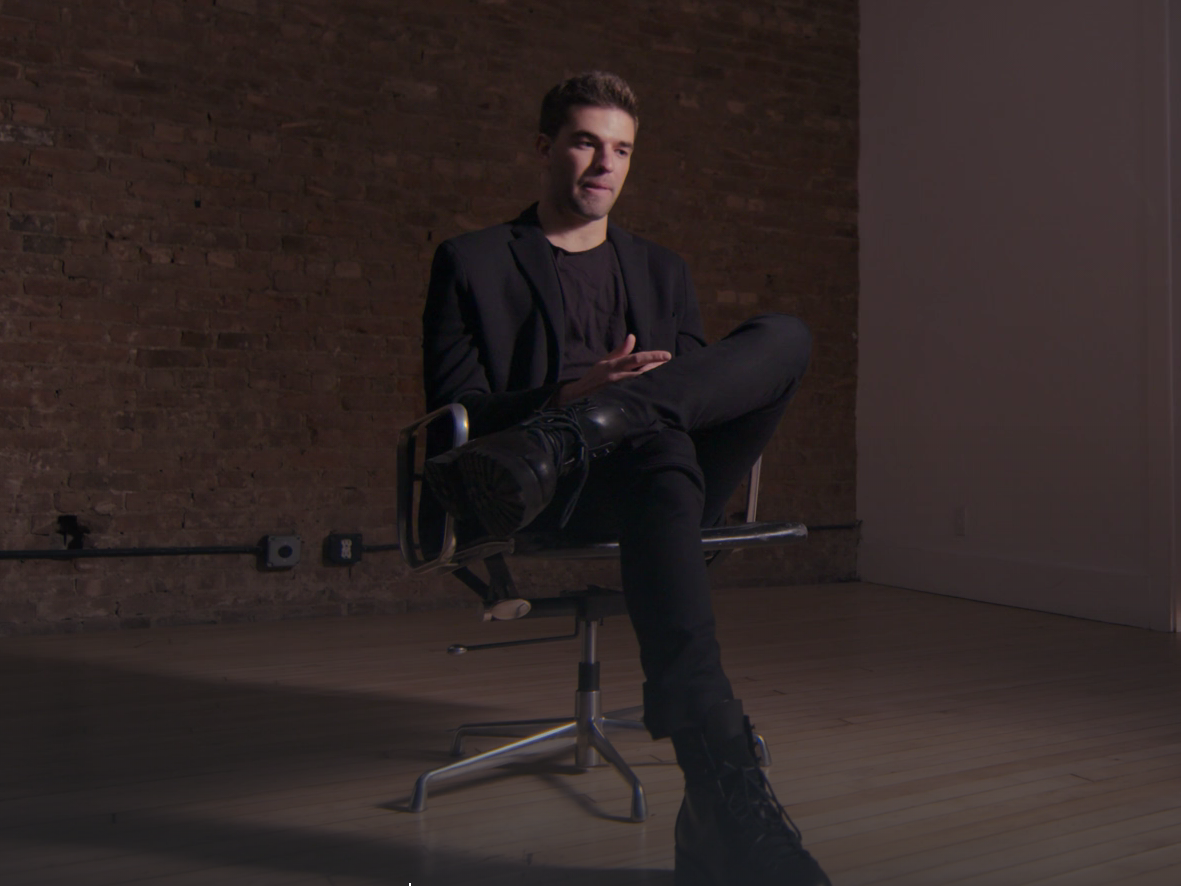- “Fyre Fraud” was released on Hulu on earlier this week.
- The Fyre Festival documentary featured interviews with Billy McFarland, one of the co-founders of the event.
- The documentary chronicled McFarland’s childhood, the lead up to Fyre Festival, the festival itself, and the aftermath.
- The event has been highly publicized, but the documentary still had some new revelations.
In 2017, entrepreneur Billy McFarland and rapper Ja Rule came up with the idea for Fyre Festival, which was supposed to be a one-of-a-kind luxury music festival taking place on a private island in the Bahamas. McFarland spent millions of dollars advertising an Instagram-worthy dream that included fantastic musical acts, promised appearances by models and influencers, and stunning beachside villas.
In the end, Fyre Festival was an epic disaster. Attendees complained that it was incredibly disorganized and that they were left stranded in half-constructed FEMA tents with little food and running water. McFarland ended up in prison on charges of wire fraud, bank fraud, and lying to law enforcement.
This past week, Hulu released their documentary “Fyre Fraud,” which took a look at exactly how the festival fell apart. “Fyre Fraud” includes interviews with employees, journalists, the festival’s social media person, and even McFarland himself, and it’s pretty eye-opening.
Here are some of the biggest things we learned from watching the documentary:
McFarland claims one of his first entrepreneurial experiences was in second grade.

In "Fyre Fraud," one of the first things we learn is that McFarland was a very entrepreneurial child in elementary school. According to McFarland, when he was in second grade helearned how to hack his school's internet access, then he changed the administrator password and locked the teachers out of the school's AlphaSmarts so he could post messages on it that promoted his own business.
McFarland also said that in fifth grade while his friends were playing sports, he was acting like an adult and running his first "web-posting company," for which he said he had three full-time employees from India.
Before Fyre Festival, McFarland began a luxury credit card business and ticket-selling business.

After McFarland moved to Manhattan, he started Magnises, a luxury credit card business. In the documentary, McFarland said that it began when he figured out a way to remove the magnetic strip on his debit card and copy it onto a sheet of metal. The inspiration for the Magnises card came from the fact that he and his friends wanted the coveted American Express Black Card but didn't make enough money to qualify.
One way McFarland got people interested in his company was by throwing parties at an expensive townhouse in the West Village. According to the NY Post, he was sued for damages by the owner. The card featured other perks, but the townhouse with an open bar and socializing potential is what some interviewees in the documentary said they believed got most people hooked.
One of his former employees said to pay for these damages, McFarland started selling tickets to expensive events. The former employee said McFarland would sell tickets to private J-Lo parties, Jay-Z and Beyonce concerts, and the Broadway show "Hamilton." She claimed that the night of, when people were supposed to receive their tickets, McFarland would buy the tickets for "insane prices," give them out, and then use those profits to buy tickets for other events he'd sold tickets to.
According to the documentary, Kendall Jenner's post was a big deal in terms of Fyre Festival promotion.

Kendall Jenner posted about the festival on her Instagram, along with a message that G.O.O.D Music - Kanye West's record label - would be involved in the festival's headliners. Jenner even shared a personalized promotional code for tickets.
According to the documentary, this gave many people the impression that West himself would be performing in the Bahamas since G.O.O.D. Music was at the top of the line-up. Some influencers in the documentary said they believed Kanye West would be performing.
Jerry Media heavily promoted the event even though a former employee said the team didn't think the festival would happen.

When McFarland decided to move ahead with Fyre Festival, he hired social media company Jerry Media to promote everything. According to Oken Aks, a former Jerry Media employee who worked on the Fyre Festival campaign, Jerry Media was behind all of the endorsers, the Instagram posts, and the hype, and if it weren't for their marketing campaign, Aks doesn't think the festival would have become as big as it did.
The documentary interviewed Aks, who said that the company was skeptical about the event from the beginning. Right after the initial meeting, Aks said his team said, "This is crazy; this will never work."
Still, even when Jerry Media was hearing that vendors were pulling out, people weren't getting paid, and nothing had been planned even weeks ahead of the schedule, they continued to market Fyre Festival as if absolutely nothing was wrong, according to Aks.
Former Jerry Media employees were allegedly told to delete any negative social media comments about Fyre Festival.

At some point a few months before the festival, some people began to get suspicious of the festival. One suspicious individual even started the Twitter account @FyreFraud.
To keep the negative press and comments away, Aks claims Jerry Media employees were instructed to go through all of the Fyre Festival social media posts and delete any negative comments that asked questions about the festival and to block those users as well.
Aks says the media company flagged words like "details, flights, fraud, scam," and even "festival," which Aks said was a huge red flag that something bad was happening.
McFarland said he "lost the box of keys" to the expensive villas people purchased.

Fyre Festival sold tickets that included stays in extravagant premium villas, according to Calvin Wells, a venture capitalist and the individual behind the @FyreFraud Twitter account. Some tickets included villas that cost up to $250,000. When festival-goers arrived at the island, they were greeted with FEMA-style tents and bare mattresses instead of villas.
In the documentary, one organizer claimed that the villas never existed. McFarland denied this and instead insisted the villas were real, but that his team had "lost the box of keys" to the villas. The keys were said to be for $2 million dollars worth of booked villas. When asked by an interviewer in the documentary why he didn't give attendees a heads up or tell them this, McFarland didn't respond.
Some influencers said they did end up getting villas at Fyre Festival.

Some influencers did get villas, but they weren't with the rest of the tents set up for Fyre Festival attendees. One influencer, Alyssa Lynch, who appeared in "Fyre Fraud," said that she was sent to a different part of the island and given a luxury villa. Lynch said she hung out at bars instead of in a parking lot. She said she felt bad for other festival attendees who did not get villas.
According to former employees, the "wristband payment system" was set up so Farland could pay back a loan.

After a few weeks, McFarland told people who had bought tickets to the festival that it was going to be a cashless event, instead, attendees would pay for everything using wristbands.
A former employee said festivalgoers were advised to load a minimum of $300 per day onto the wristbands. One employee claimed that McFarland imposed this system in order to pay back part of a loan he'd taken out. When asked in "Fyre Fraud" if he had come up with that idea just to pay back his investors, McFarland didn't respond.
McFarland reportedly spent $2 million on alcohol for the festival.

According to Delray Jackson, a Bahamian local bartender interviewed in the documentary, McFarland spent a lot of money on alcohol.
Despite the fact that McFarland did not provide proper food to festivalgoers, Jackson said McFarland spent about $2 million on alcohol for them. Jackson added that, because of taxes in the Bahamas, McFarland likely owed additional hundreds of thousands of dollars in alcohol taxes.
The Bahamian government reportedly seized products and merchandise after Fyre Festival.

McFarland reportedly never paid national insurance or custom bills to the Bahamian government, so after the festival, the documentary says all of the merchandise and products that were left behind were seized by the government as collateral.
Many workers say they never got paid.

Throughout "Fyre Fraud," local Bahamians said they had worked long hours in an effort to prepare for the festival. According to Diallo Osoria, a local Bahamian who worked on Fyre Festival, he and his fellow workers still have not been paid and are currently owed thousands of dollars.
At the end of the documentary, Osoria said of McFarland, "He left everyone high and dry and skated out of here ... he's a f---shot, it was a scam from the beginning."
The Hulu documentary noted that the Netflix documentary is produced by Jerry Media.

The Hulu-streamed documentary pointed out that Jerry Media is one of the producers of Netflix's Fyre Festival documentary, alongside Vice. At the end of the film, "Fyre Fraud" included the following text: "Jerry Media and Vice produced their own documentary about the Fyre Festival." For its part, the Netflix team put out a statement saying that "At no time did [Jerry Media], or any others we worked with, request favorable coverage in our film, which would be against our ethics."
This documentary also noted that the alleged actions of Jerry Media are named in the class-action lawsuit against the festival. Following the events, Jerry Media released a statementsaying that it was also misled by McFarland.
Visit INSIDER's homepage for more.

